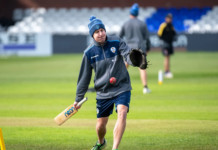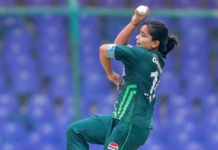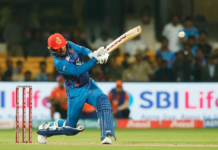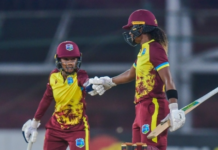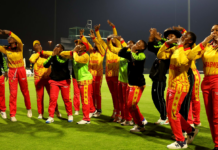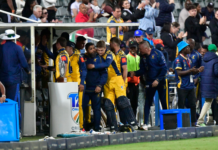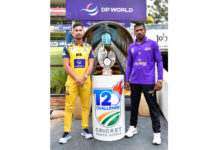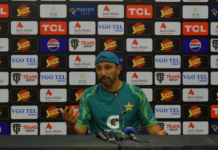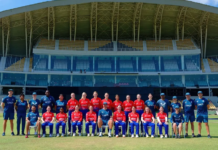Photo Credit: ICC
The ICC Men’s Cricket World Cup 2023 will follow the same format as the previous edition four years ago, meaning that all 10 teams will face one another.
- This article is part of the editorial content being provided on the Online Media Zone; for access to the Online Media Zone, please send in your name, organization, designation and e-mail address to media@icc-cricket.com
- For accreditation issues, please write to media-accreditation@icc-cricket.com
With a new format set to be introduced in 2027, this will be the final go-around for the 10-team Group Stage which provides 45 entertaining encounters to decide on four semi-finalists.
In 2019, that began with a thrilling clash between England and South Africa at The Oval – the home side getting off to a winning start on their way to a maiden ICC Men’s Cricket World Cup victory.
With every team playing nine matches, the Group Stage lasted six weeks, with ebbs and flows as new contenders emerged.
The beauty of the format meant that a slow start was not necessarily fatal to a team’s chances of progressing.
In 2019, for example, Pakistan started very slowly, winning just one of their opening five matches – earning a 14-run success over eventual champions England at Trent Bridge.
Despite that, Pakistan finished with four successive victories to get to within a whisker of qualification, missing out on the semi-finals on net run-rate.
They finished level on points with runners-up New Zealand and just one point behind England as momentum almost carried them into the semi-finals as the form side.
At the other end of the spectrum, Australia were the first team to clinch a place in the last four, winning six of their first seven matches, the only exception a defeat to India.
India were the next team to book their semi-final spot, beating Bangladesh on their way to leading the Group Stage with seven wins from nine matches.
However, the World Cup is as much about timing your run as being fast starters, and it was the hosts and the Kiwis who found their best form come semi-final time.
With every team having had their chance to take on the world’s best, the knock-out stages were all about peaking on the day.
First up were India and New Zealand, who faced off over two days at Old Trafford as the weather played its part in proceedings.
It went down to the wire, but some stunning fielding from Martin Guptill to remove MS Dhoni in the penultimate over helped the Black Caps to an 18-run victory.
The following day, England were rather more emphatic in avenging their Group Stage loss to Australia, powering to an eight-wicket win to earn a place in the final for the first time since 1992.
Those results meant that the final would crown a new champion for the first time in more than two decades since Sri Lanka had claimed victory as one of the hosts in 1996.
England went onto emulate the Sri Lankans, famously doing so in the most dramatic circumstances at Lord’s.
New Zealand made 241 for eight batting first, before England matched that total, bowled out for 241 in reply to set up a Super Over.
Again, the teams matched each other blow for blow in the Super Over, each scoring 15 runs, as England were crowned champions on boundaries scored.
Victors in the first game, champions in the last, England showed just how to manage this Cricket World Cup format on their way to lifting the trophy.
The question now is, will they be able to repeat the feat or will someone else prove to be the masters of the 10-team Group Stage set-up?



